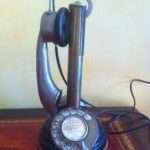When iPhone means I watch
Driving down a French autoroute, the couple had stopped at a service station for refreshment and to change drivers. It was 150 kilometres later that the man, sitting in the passenger seat, searched for his iPhone; it was not to be found. He switched on his iPad, opened a “find my iPhone” app and located his phone; it had fallen from his pocket back at the service station and was still there. The return journey was made in silence, but the phone was recovered.
The capacity to track vehicles has been readily available to governments for some time. In France, all lorries, regardless of nationality, travelling through the country, must have a GPS tracking system to facilitate the charging of the “eco-taxe” payable on 15,000 kilometres of French roads. Germany has been tolling HGVs through satellite tracking since 2005. In Ireland, commercial transport companies use GPS to monitor the movement of their vehicles.
The app that was used to locate a phone on a French motorway had also worked when a family member had lost their phone in a taxi in a local town. Switching on the iPad they discovered that the taxi driver had returned home, so they called at his house and the taxi driver’s wife retrieved the phone from behind a seat in the car.
Tracking for taxation or business seems legitimate, but the story of the phone being tracked to a service station or to someone’s private residence is surely a cause for concern? If someone can track a vehicle by leaving a device in it and then turning on their phone, then what is to stop people doing so for all sorts of reasons? Perhaps it would mean the danger of losing a device, but such a cost would probably be considered small by a stalker, or other person wishing to track someone for nefarious purposes. Does anyone ever think about these things when technology is developed, or is our world one where ethics is forever doomed to try to catch up with technology?
Of course, the find my phone app, can have beneficial uses. Worries about where young people might be can presumably be alleviated by using the app (always assuming, of course, that their phone has not been stolen, mislaid, or deliberately left somewhere), and a spouse can know when their partner is likely to arrive home and so switch on the kettle, or turn on the dinner (no longer will a whole railway carriage need to hear the person shouting, “I’m on the train” into their phone).
All the same, though, it is worrying that such a capacity for following someone has just slipped into everyday usage without any discussion whatsoever of whether this is something desirable, and, if it is thought a “good thing”, whether it is something that should be regulated. Phones have become something altogether more powerful and more sinister than was ever foreseen.


Comments
When iPhone means I watch — No Comments
HTML tags allowed in your comment: <a href="" title=""> <abbr title=""> <acronym title=""> <b> <blockquote cite=""> <cite> <code> <del datetime=""> <em> <i> <q cite=""> <s> <strike> <strong>